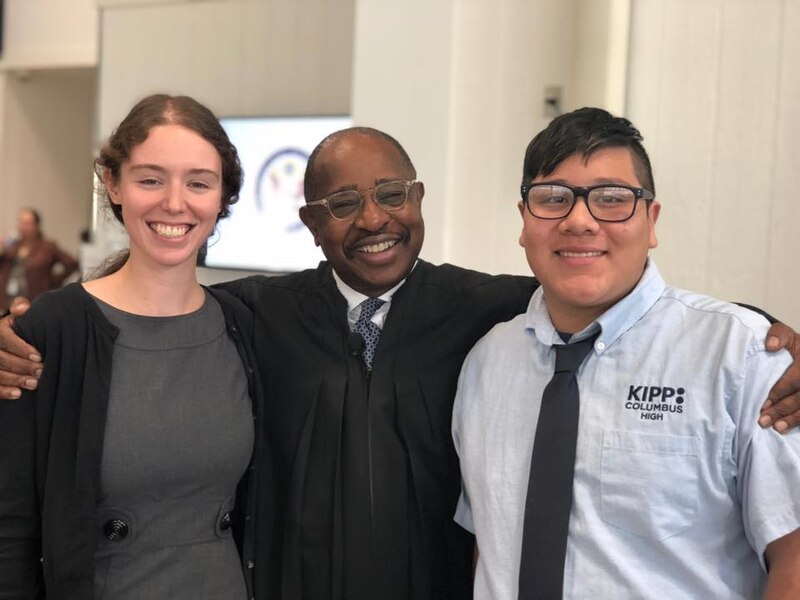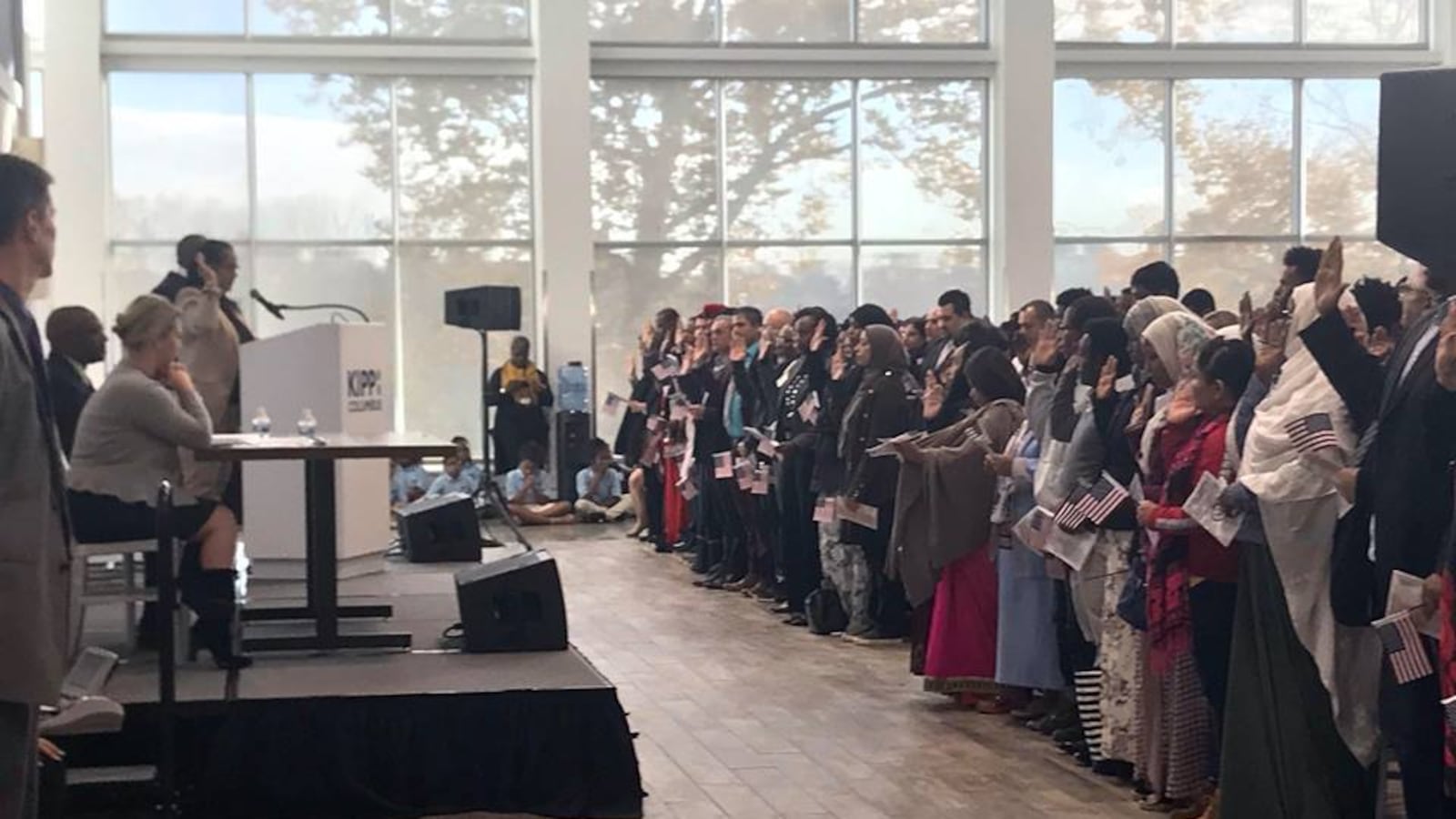One hundred and fifty immigrants were moments away from taking their oath of citizenship on Tuesday when a high school student named Armando began to speak.
Armando, a sophomore at KIPP Columbus High School in Ohio, took the podium in his school’s cafeteria and delivered an emotional speech in which he described testifying recently in his mother’s immigration proceedings.
“My mom came here for all the freedom that people have here in America,” he told the hundreds of people in the room — immigrants and their families, plus classmates and teachers from KIPP Columbus’s 1,100-student campus.
“But today is not about my mom. Today is about you, and the path you have taken to get here. I understand that becoming an American citizen may have been a difficult path for some of you, and I am so proud of you for reaching your goal.”
Hannah Powell, KIPP Columbus’s executive director, said the speech was “intensely emotional” for everyone in the room. Even the judge presiding over the naturalization ceremony, Algenon Marbley, said he teared up.
“I was quite visibly moved by Armando’s speech,” he said, noting that he has heard many immigration stories in his 20 years on the bench. “When you hear it from a child it’s an even more powerful experience. Everyone could sense the sincerity and emotion of this young man.”
Holding the naturalization ceremony at KIPP’s Columbus campus was Marbley’s idea. The chair of KIPP Columbus’s board since the charter network came to the region a decade ago, he said he considered exposing students to the citizenship process to be “part and parcel of our holistic approach to education.”
The event also offered a sharp contrast to the morning’s news: President Donald Trump had just announced his desire to end birthright citizenship, or the right enumerated in the 14th Amendment to the U.S. Constitution that guarantees citizenship to all people born in the country.
“I saw the news about citizenship and then to walk into our high school and to welcome 150 new people to our country was just a blessing,” said Hannah Powell, KIPP Columbus’s executive director.
The news went unmentioned during the event. “We weren’t going to allow that to sully or otherwise cast a pall over the ceremony,” Marbley said.

Instead, Marbley quoted writer Ralph Ellison to encourage the 150 new citizens — who came from 53 different countries and ranged in age from infancy to 87 — to see themselves as the newest strands in the great tapestry of America.
Milica Bison, a Spanish teacher who herself became a naturalized citizen three years ago, led the Pledge of Allegiance.
And immediately after the ceremony, the new citizens registered to vote, in an action that Powell said offered a powerful model for KIPP students.
Nationally, KIPP leaders have not shied away from political issues over the past two years, pushing especially for the continuation of Deferred Action for Childhood Arrivals, the program that has allowed some students to remain in the U.S. without having to fear that they will be deported. KIPP Foundation CEO Richard Barth also committed to support the Black Lives Matter movement in 2016.
Having the ceremony on campus was a natural move, Powell said, because the network’s goal is to prepare students to be active citizens after they graduate.
“For me to shake 150 people’s hands who were just made citizens of our country is something I will never forget,” she said. “I will never forget looking in their eyes to say, ‘Welcome, we’re so glad you’re here — in our school and our country.’”


